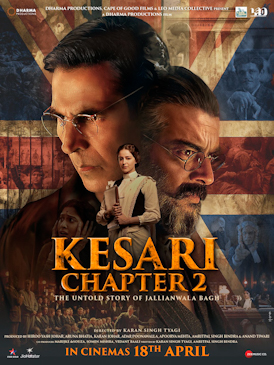'120 Bahadur': Do historical films have to be factually accurate?
Bollywood's relationship with "true story" films has always been complicated. With every new war epic or historical drama, audiences find themselves debating the same issue: how much creative liberty is acceptable? The latest trigger is '120 Bahadur', which the Delhi High Court cleared despite a plea claiming the film doesn't factually depict the Battle of Rezang La.
Add to that the case of 'Kesari Chapter 2' -- based on Havildar Ishar Singh but heavily fictionalised-- and the conversation is louder than ever.
Here's a closer look at why Bollywood bends facts, how audiences react, and whether our expectations from historical films need their own reality check.
'120 Bahadur' and the Rezang La debate
Farhan Akhtar's "120 Bahadur" has been mired in controversy after a plea alleged the film distorted historical facts relating to the 1962 Battle of Rezang La.
The Delhi High Court rejected the plea on the ground that films come under creative expression and cannot be held to the same standards as textbooks.
This reflects a larger pattern: audiences seem to assume "true story" films are completely factual, forgetting that filmmakers create narratives, not academic records.
'Kesari: Chapter 2': A real hero, a fictionalised film
The earlier case of Akshay Kumar's 'Kesari Chapter 2' shows how Bollywood walks the line between fact and fiction. The events depicted in the plot are not what happened, so the film's battles, character arcs, and enemy numbers were all dramatized for emotional height and scale. The movie was only inspired by Havildar Ishar Singh. The hero remained real; the story did not.
 Credit: Dharma Productions
Credit: Dharma Productions
The confusion caused by embellished "historical" films
Audiences often watch historical films believing every frame is historical truth. But given the fact that it is a film and not a documentary, Bollywood has often added fictitious elements to historical movies, too.
This isn't a new trend. Many of the biggest blockbusters have taken creative liberties in their work:
- "Padmaavat"- a legend taken as history, the accuracy of which has sparked debates.
- "Bajirao Mastani" – Romance amplified, timelines tweaked for drama.
- "Manikarnika" - Characters merged, scenes dramatized.
- "Shershaah": Emotional beats amped up for cinematic effect.
The pattern is clear: Bollywood favors emotion over exactness, scale over rigid accuracy, storytelling over documentation. As Bollywood continues with its series of war dramas and historical re-tellings, this debate will only get louder.
The real question that remains is: Is the purpose of a historical film to teach us history or to inspire us through storytelling? With films based on historical events, would audiences prefer that they stick to the events as they actually happened, or is dramatisation acceptable as long as the story remains entertaining?









